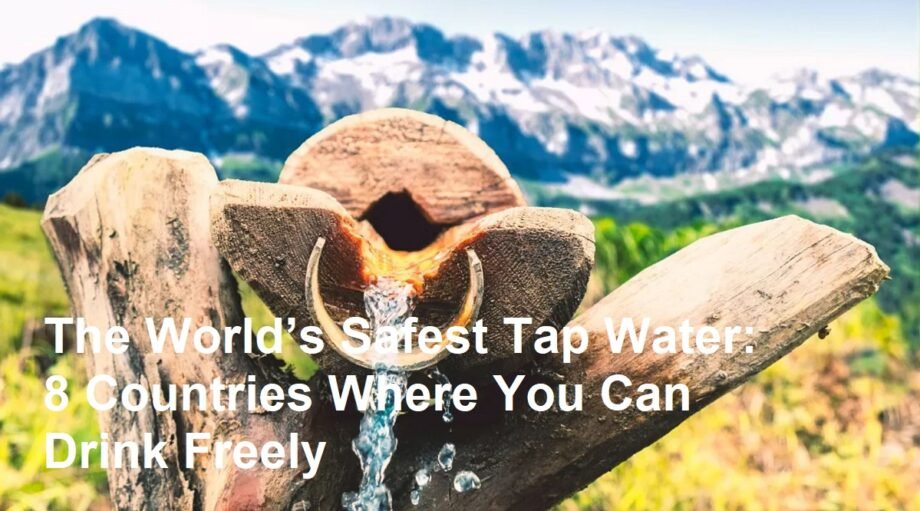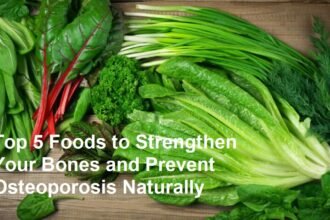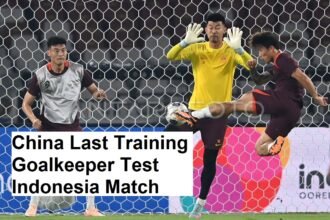Introduction
Access to pristine tap water isn’t a luxury—it’s a scientific achievement. While 2 billion people lack safe drinking water globally (WHO), these nations combine cutting-edge filtration, strict environmental laws, and geological advantages to deliver water so pure, bottled brands seem redundant. Discover where you can fill your glass with confidence.
How Water Quality Is Measured: Science Behind the Rankings
Global assessments use three key metrics:
- Microbial Safety(0% E. coli/enterococci)
- Chemical Purity(<0.1% pesticides/heavy metals)
- Infrastructure Reliability(WHO/UNICEF Joint Monitoring Programme)
Top sources: Yale EPI 2022, UNESCO Water Quality Index, and national ministry reports.
The Elite 8: Countries with Impeccable Tap Water
1. Switzerland
- Source: Alpine glaciers (natural filtration through granite)
- Tech: UV + ozone tertiary treatment
- Key Stat: 0 contaminants exceeding EU limits (FOPH 2023)
- Iconic Sip: Geneva’s 1,200 public fountains
- Norway
- Advantage: Rainwater + protected fjord reservoirs
- Innovation: AI-powered pipe monitoring
- Safety Net: 99.98% compliance with NS 9451 (world’s strictest standard)
- Finland
- Natural Edge: Glacial moraines filter 80% of water
- Treatment: None needed in 85% of regions (Helsinki Water)
- Bonus: Free water in all restaurants by law
- Denmark
- Purity Benchmark: 0 detectable PFAS (2023 DTU study)
- Tech: Groundwater recharge + activated carbon filters
- Result: 50% lower gastrointestinal diseases vs. EU avg.
- Sweden
| Factor | Detail |
| Source Protection | 95% from groundwater (untouched forests) |
| Pipe Investment | $2.1B/year maintenance (SVOA) |
| Taste Test | Stockholm ranked #1 globally (Berkey 2023) |
- Austria
- Alpine Advantage: 100% spring/mountain sources
- Infrastructure: 5,200 km of stainless steel pipes
- Tourist Perk: Free refills at 1,800 Trinkwasserstellen(Vienna)
- New Zealand
- Natural Filters: Volcanic aquifers + UV-blocking ozone layer
- Regulation: Taumata Arowai’s 200+ tested parameters
- Unique Risk: Post-volcanic testing (e.g., White Island 2019)
- Canada
- Scale Challenge: Treats 6% of world’s freshwater
- Tech: Membrane filtration in 92% of municipalities
- Indigenous Leadership: Six Nations’ award-winning plant (Ontario)
Honorable Mentions
- Iceland: Geothermal purity (but high arsenic in some wells)
- Germany: 99.89% compliance (UBA), though nitrate concerns in agriculture zones
- Singapore: NEWater recycled system (world’s most advanced purification)
Why Bottled Water Loses Here
In these countries:
- Environmental Cost: 250x more CO2 than tap (ETH Zürich study)
- Quality Myth: 40% of bottled = repackaged municipal water (NRDC)
- Price Gap: 500-1,000x more expensive per liter
Travel Smart: Tap Water Safety Tips
- Verify Local Advisories: Some mountain huts (e.g., Norway) rely on untreated rainwater.
- Use Filtered Bottles: For immunocompromised travelers (e.g., Grayl GeoPress).
- Avoid Lead Risk: In pre-1970 buildings (run taps 30 sec first).
Conclusion
From Switzerland’s glacial springs to Singapore’s high-tech reclamation, these nations prove clean water requires relentless science and stewardship. Yet with climate change stressing reservoirs (e.g., Canada’s 2023 wildfires), their success hinges on sustained investment. For travelers, sipping their tap water isn’t just safe—it’s a tribute to sustainable innovation.









